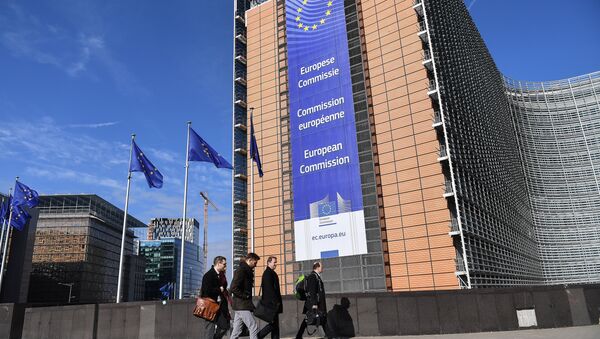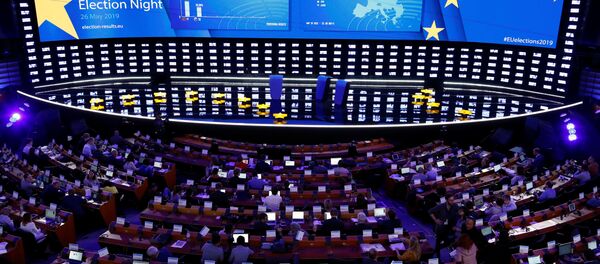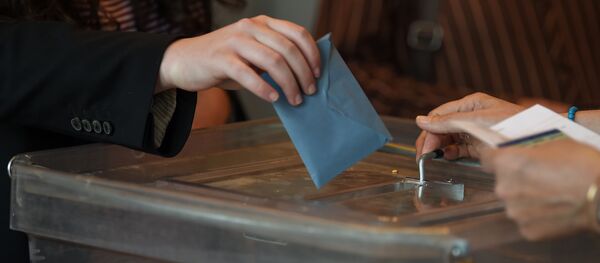EU Arguing Over Lead Candidate Procedure
The European Council and the European Parliament seem to be in disagreement over how the candidate should be selected. The European Parliament largely favors the lead candidate process, the parliament's president Antonio Tajani confirmed on Tuesday. Under this procedure, each political group in the European parliament may nominate a candidate for the top job. The nominee of the group with the most votes can then expect to get the job.
In addition to the rift between the council and the parliament, there may be some disagreements within the hemicycle.
The current president of the commission, Jean-Claude Juncker, campaigned as the lead candidate for the European People's Party (EPP) in 2014. However, the EPP saw its numbers slip in the latest election. It is still the largest party, but with 179 seats in a 751-seat parliament, instead of 218.
Even if it joins forces with the second largest group, the Progressive Alliance of Socialists and Democrats (S&D), their combined numbers will still not be enough for the majority in the parliament. Meanwhile, their potential coalition partners may have a different view on the lead candidate process.
READ MORE: French President Macron Says Key EU Posts Should Be Held by 'Strong Leaders'
Guy Verhofstadt, the leader of the Alliance of Liberals and Democrats for Europe (ALDE), has criticized the so-called Spitzenkandidat procedure. The liberals put forward several names instead of just one.
"The [European People's Party group] EPP is pushing hard for the Spitzenkandidaten-system, but unfortunately they killed the legitimacy when they voted against the transnational lists. A Spitzen-candidate that you cannot vote for in the whole of Europe is simply not serious," Verhofstadt said on Twitter on Tuesday.
Arrangements of the Past
The EPP and the S&D "cannot continue with their cosy little arrangements," Dominique Bilde, a French member of the European Parliament, told Sputnik.
"The EPP and the Socialists of the S&D have lost big in these elections. They cannot continue with their cosy little arrangements; once a Socialist, once a Social Christian to head parliament and the same for the Commission," Bilde, who belongs to the French National Rally party, said.
READ MORE: EU Election Confirms the UK is Finished — Scotland's Time Has Come
Bilde believes that the two major parties will likely turn to the Greens or ALDE to fill some influential positions.
"There are several liberal candidates bickering between each other: the Competition Commissioner Margrethe Vestager, or the ex-Prime Minister of Belgium Guy Verhofstadt are the most often mentioned," Bilde said.
Alternatively, a relative "outsider" Michel Barnier, who — as the EU chief negotiator for Brexit — "managed to keep Europe united on the negotiation," could be up for the top job "if it is too difficult for the main parties to select among their ‘official’ spitzenkandaten," the French politician said.
France, Germany Back Different Candidates
Frenchman Barnier is an EPP member, but their lead candidate is the leader of the party's political group in the parliament, a German Manfred Weber.
Macron's Renaissance movement together with ALDE secured 105 seats, which puts them in the third place and makes them likely kingmakers.
Charismatic Leader
The president of the European Commission is usually in the spotlight, so the right candidate would have to be charismatic and diplomatic, Michel Liegeois, a professor in political sciences at the UCLouvain university in Belgium suggested.
"The role of the president of the European Commission is the most visible in the European institutions, so it is important — and all will agree on that — that the person chosen, has charisma, is at least bilingual with English and has an acute sense of diplomacy, to navigate between the heads of states, governments and parties, to ‘keep the church in the middle of the village’ without antagonizing anybody," Liegeois told Sputnik.
"Do you really believe that the ego of the heads of state of countries such as France or Germany, Macron and Merkel or others, would accept to have a ‘super-president’ of the Commission, that would overshadow their own little persons? Never! You will never have a Tony Blair or a Nicolas Sarkozy in such a position. Not that they refuse, but the heads of the member states don’t want the head of the European executive [branch] to be even slightly independent from them," Dehaene said.
Consequently, Dehaene believes that Verhofstadt and Timmermans are unlikely to be picked for president exactly because of their charisma.
Time For Women To Lead?
Liegeois pointed out that many were insisting on a woman for the top job. Tusk spoke in favor of gender balance in the commission on Tuesday, while Macron suggested that the top four EU jobs should be filled by two men and two women.
"There has never been a woman at this high function; it is about time. There is of course also the coalition to be formed. The most credible would be a center-right coalition of the two largest parties, the ‘losers’ plus the liberals of the ALDE or else a center-left coalition with the two 'losers' and the Greens. In both these configurations, there is a prominent lady to fulfill the role: the German Ska Keller for the Greens and Margrethe Vestager, the Danish Competition Commissioner for the Liberals," Liegeois said.
Macron Party's 2nd Spot in EU Vote 'Personal' Loss for President — OfficialDamien Lempereur, the spokesperson for a French party, Debout La France!, believes that Vestager could win the top job if the two largest parties got an alliance with ALDE rather than the Greens, whose program on climate change would be too "extreme" for the largest parties, demanding "a real tsunami of taxation."
"So the main parties will probably be much more ‘classical’ and make a deal with the friends of Macron, the Liberals… It is Macron who is the 'heaviest decider,' Germany defending a certain loser, Manfred Weber," Lempereur said.
Macron knows Vestager well, the two "have debated in public and met many times" and "appreciate each other," Lempereur suggested. The two have had their differences — Vestager reviewed and rejected the proposed merger of French Alstom and German Siemens, which did not sit well with either Paris or Berlin. On the other hand, both are strong believers in Europe, both have taken shots at digital multinationals.
Vestager, as a commissioner, has an advantage of experience in the EU executive branch, unlike Germany-backed Weber. Merkel, however, has warned against dismissing any candidate because they only have experience in the parliament.
According to Merkel, the EU leaders have agreed to try to propose a candidate for the leadership of the Commission by the EU summit in late June.







